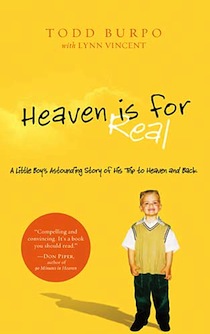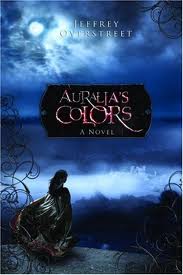 Does appreciating Godâs truth echoed elsewhere mean I dishonor His written Word?
Does appreciating Godâs truth echoed elsewhere mean I dishonor His written Word?
If I enjoy the beauty of a sunset, am I questioning the sufficiency of Scripture?
When listening to what I believe is the worldâs most amazing music, The Lord of the Rings film score, am I acting as if God hasnât given me enough in the Bible for faith and practice?
And (this is a direct followup from last weekâs column) if I look back on something in my life, perhaps what I believe could have been a subconscious push from Him to try this, go here, pray for that person, and think, Was that God personally guiding me? â am I then rejecting my Creatorâs final, inerrant and ultimate revelation in favor of some new revelation?
I will give away the ending by answering no to all four questions. I donât believe these beliefs automatically mean we reject Godâs Word or act like we desire newer and shinier truths.
Instead we can love all these, not in place of Godâs Word, but because they reflect its light.
Godâs personal guidance: best seen in retrospect?
Last week I wrote about some Christians who either think too highly of their own writing as if itâs God-inspired, or else feel constrained to do nothing unless they receive some sign from God that theyâre meant to make some decision.
That brought much discussion, mostly with my friend and co-blogger Becky, about whether Christians can trust God to guide them nowadays in ways like promptings or even miracles.
My guess: though I did mention Christians who expect some kind of guidance before making decisions about extra-Biblical matters â who specifically to marry, what job to choose and such â I didnât make it clear that yes, I believe we can look back at our lives and see where God was working, and even how His Spirit has sovereignly guided us.
Yet that personal guidance is best seen after the fact â when time has passed, or perhaps that very strong impulse has actually come true and we can see the God-glorifying results.
One also canât rule out the Biblical gift of prophecy. Thatâs a subject of much debate, which I donât mind taking up another time, but in short: itâs very difficult to prove Biblically that certain gifts of the Spirit in the New Testament â not just mentioned, but endorsed â have suddenly expired now that the Bible is finished. â[W]hen the perfect comes, the partial will pass awayâ (1 Cor. 13:10) isnât talking about the Bible coming and certain gifts drying up â and anyone who does want to honor Scripture would want to read that in better context!
Spiritual gifts include prophecy, which Paul says in 1 Cor. 14:5 is even better than âspeaking in tonguesâ (which Iâm not touching here). But what is this kind of prophecy? Itâs not using an inner spiritual-warfare Geiger counter or forecasting the future. Instead it is speaking âto people for their upbuilding and encouragement and consolationâ (1 Cor. 14:3). So this kind of prophecy is done in a church, with testing  (1 Cor. 14: 29-33), for the bodyâs building-up.
Is that contrary to the truth that Scripture is sufficient? Not if we take the word of Scripture itself â and not when any âprophecyâ given in church points back to Scripture anyway.
This is similar to other ways God âspeaksâ to us. And though I think we must be careful with our language if we say âGod told meâ to do such-and-such, so as not to confuse it with how God revealed His Word, we must not overreact if someone believes God pointed back to His Wordâs light with a reflection. Even if thatâs an amazing story.
An over-reflexive reaction?
Frequent attacks on Scriptureâs sufficiency come from all directions: be it faith-revisionist popular authors, or true Christians who claim they value the Bible, but actually put more trust in other things: personal promptings, showmanship, or Godâs good gifts. With all those attacks, many Christians are eager to defend Scripture as the only Word âbreathed out by God and profitable for teaching, for reproof, for correction, and for training in righteousness, that the man of God may be competent, equipped for every good workâ (2 Tim. 3: 16-17).
But some Christians overdo their reaction. We need not act as if everyone who enjoys a truth reflection in a work of art, natural wonder, song or even apparent âprophecyâ in church is thus rejecting the only sure Source of truth in the way Heâs chosen to reveal it: His Word.

Recently a certain book has brought many critics replying with âScripture is sufficient!â The book is about a little boy who was undergoing surgery, and later said heâd been temporarily transported to Heaven (the present-day âintermediateâ Heaven; alas, the book does not talk as much about the more-incredible future New Heavens and New Earth â Rev. 21). Some criticism of accounts like this could be justified, especially if the tale includes anti-Biblical details about Heaven, and if some readers value the word of a person above Godâs Word that already assures us that Heaven is for real (and New Earth will be even better). But I do see some overreactions: Scripture is sufficient! So we have no use for any stuff like this!
In response to this kind of criticism of any quasi-miraculous account, an online friend noted:
[I]n the deserts of our life, we find strength by clinging to God and God’s Word alone, but that doesnât mean thatâs how He ânormallyâ plans for us to live… He gives us many other things to enjoy and to strengthen our faith.
Thatâs exactly why reflexive, inadequately-thought-out defenses of âScripture is sufficient!â don’t apply in these cases.
Yes, Scripture is our final and ultimate standard, the way God has chosen to reveal His surest Word. Christians should love that, and we canât say that enough.
But itâs not Biblical to discount any means we see God using other ways to reflect the light of His Word, such as in natural wonders, works of art, retrospectively seeing His sovereignty in our lives, or enjoying awesome stories honoring His truth.
Moreover, few who overdo those arguments that Scripture-is-sufficient (in narrowly, wrongly defined ways) will object to things like local-church membership, preaching, right theology applied to life, or even new worship songs, or many other things Scripture itself prescribes! Similarly, we could conclude we donât need book reviews even of actual bad books because âScripture is sufficientâ!
Echoing the Word
I once heard a guy on the radio slamming a catalog he had received that advertised costumes and other equipment for worship dance in church. The host didnât claim it was unnecessary and silly to have a âChristian itemsâ catalog (which could be a more substantive charge). Instead off he went into a true but misapplied rebuttal based on Scripture is sufficient!
He then went on to rant about how Christians simply donât need performances, dancing, smoke machines, motorcycles, radio â âOh wait!â he said with a laugh (paraphrasing). âThat was a slip of the tongue. I meant ârodeo.â We donât need rodeo. But radio is okay.â

Yes, apparently one can purchase Christian-rodeo-themed caps.
This host was, after all, on the radio himself. But notwithstanding the question of whether rodeo is okay in church, why is radio okay and rodeo wrong? To be consistent, shouldnât we dismiss both because âScripture is sufficientâ? But no one really applies this narrow and wrong view consistently. Nor can one really apply it that way.
And no one should. Godâs Word is indeed amazing and sufficient â nothing, not even a good gift from God, should be seen as a greater revelation for us about Who He is, what He has done for His people and what He will do. Yet God is also good enough to permit His Wordâs light to reflect in other ways â natural wonders, beauties even in a fallen world, and in the creations of man either meant to glorify Him specifically or simply showcase true beauty. He is also good enough to allow us to look back on our lives and see how He was guiding us, whether we wondered at the time if He was, or never saw His subtle sovereignty coming.
And as someone who wants to love any good gift for the sake of Himself, I rejoice in that!
What about you? What reflections of His Wordâs light do you love seeing?











































 This year, as with every year past, I find myself busier than ever. Vanity of vanities, right?
This year, as with every year past, I find myself busier than ever. Vanity of vanities, right?
 Does appreciating Godâs truth echoed elsewhere mean I dishonor His written Word?
Does appreciating Godâs truth echoed elsewhere mean I dishonor His written Word?














 I missed my chance to read the first book, and the second book–Jeffrey Overstreet’s Cyndere’s Midnight–had already been sent out to reviewers. But I was intrigued enough by the story and excited enough about the tour that I went out and bought both Cyndere’s Midnight and its prequel, Auralia’s Colors, launching into a love affair with the modern-day series that has done more than anything else to renew my interest in speculative fiction.
I missed my chance to read the first book, and the second book–Jeffrey Overstreet’s Cyndere’s Midnight–had already been sent out to reviewers. But I was intrigued enough by the story and excited enough about the tour that I went out and bought both Cyndere’s Midnight and its prequel, Auralia’s Colors, launching into a love affair with the modern-day series that has done more than anything else to renew my interest in speculative fiction. The Auralia Thread, which also includes Raven’s Ladder, finished this month with the release of The Ale Boy’s Feast. As I reread Raven’s Ladder in preparation to finish the series, it’s struck me that the richness of these stories stems in part from the author’s refusal to tie everything down to one allegory or one story or even one character. The world of the series is appropriately called The Expanse; the story is sprawling.
The Auralia Thread, which also includes Raven’s Ladder, finished this month with the release of The Ale Boy’s Feast. As I reread Raven’s Ladder in preparation to finish the series, it’s struck me that the richness of these stories stems in part from the author’s refusal to tie everything down to one allegory or one story or even one character. The world of the series is appropriately called The Expanse; the story is sprawling. And the dangers of thinking that just because we’ve glimpsed a mystery, we understand it.
And the dangers of thinking that just because we’ve glimpsed a mystery, we understand it.


